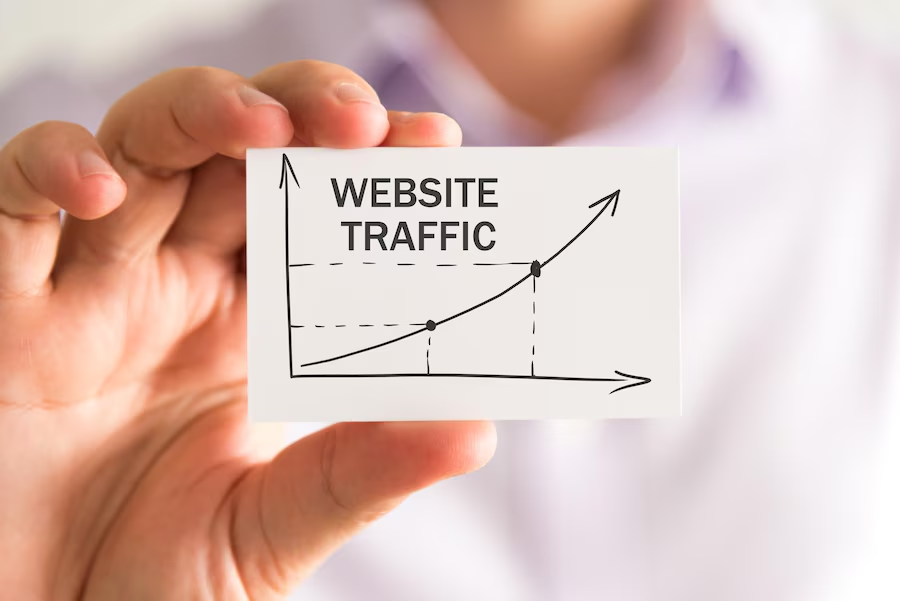How Does the Search Engine Find Pages When You Search?
Ever wondered how Google magically delivers millions of search results in seconds? It’s not magic—it’s a finely tuned process involving search engine indexing, web crawling, and SEO algorithms working behind the scenes. Understanding how search engines find and rank pages can help you optimize your website for better visibility. Let’s dive in.
Understanding the Search Engine’s Process
Before your favorite search engine (like Google, Bing, or Yahoo) serves up results, it goes through an elaborate process of crawling, indexing, and ranking.
What Happens When You Type a Query?
You open Google, type in a search like “best SEO practices”, and within milliseconds, a list of results appears. But what’s happening behind the scenes?
- Google’s algorithm interprets your query – It analyzes the words, context, and intent. Are you looking for a guide? A product? Local services?
- It searches its index – Google doesn’t search the live web; instead, it scans its vast database of previously stored web pages.
- It ranks the results – Based on factors like relevance, authority, and keyword optimization, Google arranges pages from most to least useful.
It’s like flipping through a massive digital library, but with lightning speed.
How Search Engines Index and Store Web Pages
Think of website indexing as a giant filing cabinet where search engines store all the web pages they find.
- Crawling: Search engine bots (a.k.a. spiders) scan the web for new or updated pages.
- Processing: The bots analyze the page’s content, structure, and metadata.
- Storing: The information is added to the search engine’s index, a massive digital library of web pages.
If your page isn’t indexed, it won’t appear in search results—no matter how amazing your content is. That’s why SEO ranking factors like proper site structure and internal linking matter.
The Role of Crawlers and Bots in Finding Content
Web crawlers are like digital detectives constantly scanning the internet.
- They follow links – If one page links to another, the crawler follows the trail.
- They check for updates – Websites aren’t static, so crawlers revisit pages to track changes.
- They evaluate content quality – If a page is too slow, broken, or spammy, it gets ignored.
Imagine a crawler as a busy librarian organizing millions of books—it needs to know what’s relevant and what’s junk.
The Search Engine Ranking System Explained
Once indexed, how does a page climb to the top? Enter search engine ranking—the science of deciding which pages appear first.
Factors That Determine Page Ranking
Google uses 200+ SEO ranking factors to decide which page gets the spotlight. The most important ones include:
- Relevance: Does your content match the user’s search intent?
- Authority: Do other websites link to you as a trusted source?
- User Experience: Is your site fast, mobile-friendly, and easy to navigate?
If your website loads like a snail or looks like it was built in the early 2000s, good luck ranking!
How Keywords Influence Search Results
Keywords are the GPS of search engines—they guide them to the right content. But stuffing your page with random terms won’t work. Instead, use semantic keywords that naturally fit the context.
For example, if you’re optimizing for “Google search process”, related keywords like “search engine indexing”, “SEO algorithms”, and “web crawling” should also appear naturally.
The Importance of Backlinks and Domain Authority
Backlinks are votes of confidence from other websites. If authoritative sites link to yours, search engines assume your content is trustworthy.
- High-quality backlinks boost rankings.
- Spammy backlinks (like from shady sites) can hurt you.
Think of backlinks like references on a résumé—the better they are, the more credible you appear.
How to Optimize Your Website for Search Engines
Now that you know how search engines find and rank pages, let’s talk about SEO best practices to help your site get noticed.
SEO Best Practices for Better Indexing
- Submit your site to Google Search Console – This ensures Google knows your website exists.
- Use a clear site structure – A messy website confuses crawlers and visitors.
- Optimize meta titles and descriptions – These tell Google what your page is about.
A well-optimized site makes life easier for search engine bots—so give them a roadmap instead of a maze.
Technical SEO and Site Structure Optimization
Technical SEO might sound intimidating, but it’s really about:
- Fixing broken links – A dead-end link = a bad user experience.
- Speed optimization – Nobody likes a slow website, including Google.
- Mobile-friendliness – Over 60% of searches happen on mobile, so your site better be responsive.
Google loves fast, well-structured sites, and users do too.
The Role of Fresh Content in Search Visibility
Search engines love fresh content. Updating your blog regularly signals that your site is active and relevant.
- Evergreen content – Timeless posts that stay relevant for years.
- Trending content – Riding the wave of current industry trends.
If your last blog post was in 2018, don’t expect Google to take you seriously!
Future of Search Engines: What’s Next?
Search engines are evolving, and SEO algorithms are getting smarter.
AI and Machine Learning in Search Algorithms
Google’s AI-driven updates (like RankBrain) help it understand user intent better. This means:
- Content must be human-friendly (not written for robots).
- Search engines prefer natural, conversational language.
In short, write like a human, not a keyword-stuffing machine.
Voice Search and How It’s Changing SEO
“Hey Siri, how do search engines work?”
Voice search is rising, meaning longer, more conversational queries are becoming important. To optimize for this:
- Use question-based content (e.g., “How does Google find pages?”).
- Focus on natural, spoken language.
With more people using voice assistants, SEO strategies need to evolve.
Get Found, Get Ranked, Get Results
Understanding how search engines find pages is crucial for boosting your website indexing and organic search results. By optimizing your site for search engine bots, improving your SEO ranking factors, and focusing on keyword optimization, you can climb the ranks and attract more customers.
Want to make sure your website ranks at the top? Contact us for a free consultation and let’s get your business the visibility it deserves!
FAQs
1. How often do search engines update their rankings?
Search engines like Google update their algorithms frequently—some updates happen daily, while major updates roll out a few times a year.
2. Can search engines find pages that are not linked anywhere?
No, search engines rely on links and sitemaps to discover new pages. If a page isn’t linked or submitted, it may not be indexed.
3. Do search engines prioritize new content over old content?
Not necessarily. While fresh content can boost visibility, older, high-authority pages with strong backlinks still rank well.
4. How does Google handle duplicate content?
Google tries to show the most relevant version and may ignore duplicate pages, which can impact rankings. Canonical tags help prevent issues.
5. Does social media impact search engine rankings?
Directly, no—but social signals like shares and engagement can drive traffic, which indirectly helps with SEO.








